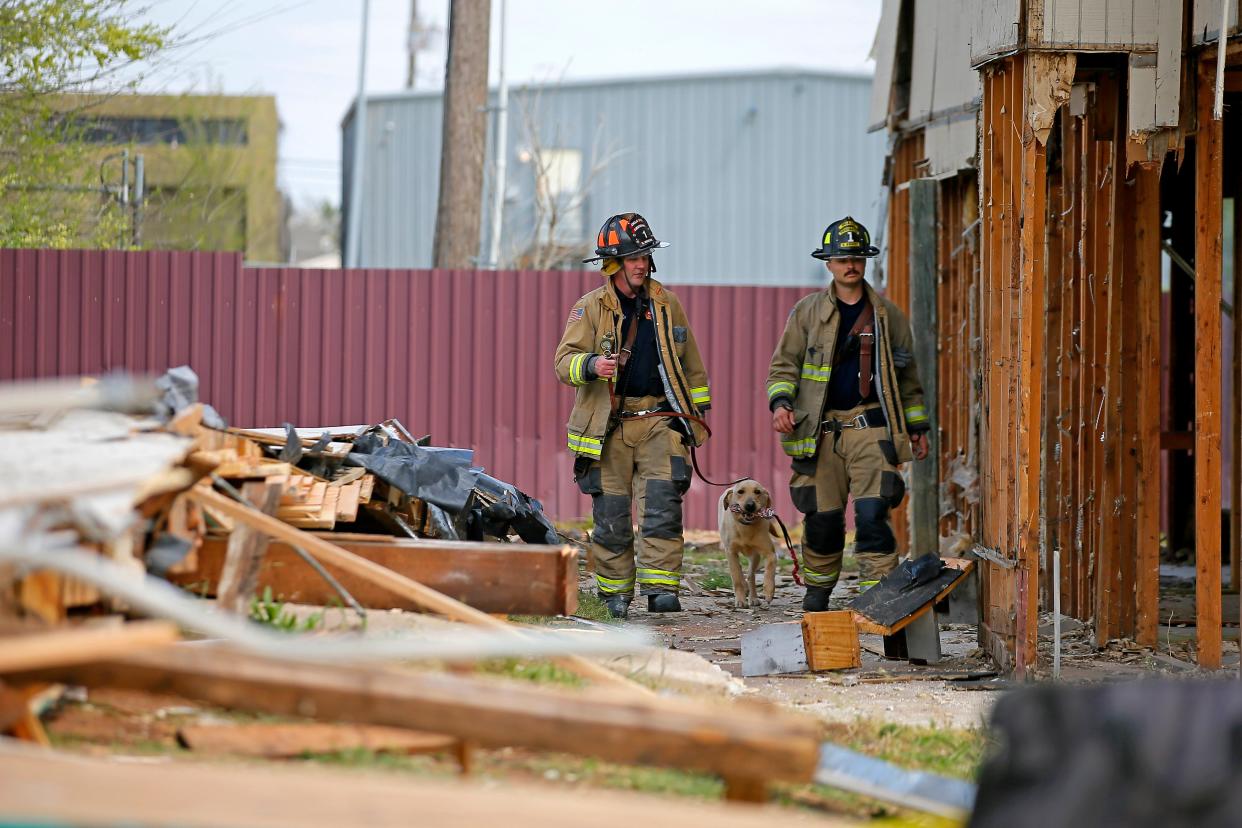Oklahoma County commissioners forgo 'premature' use of COVID funds for K9 Training Center

A proposal for up to $25 million in coronavirus relief funding for a search and rescue dog training facility failed to gain the support of Oklahoma County Commissioners during their Monday meeting.
The request from County Clerk David B. Hooten, also a candidate for state treasurer, would have funded the construction of a training center for "specialized canines used for emergency disaster recovery," according to the agenda item.
The center was set to benefit the Ground Zero Emergency Training Center, a nonprofit founded by famed former University of Oklahoma Football Coach Barry Switzer.
Switzer has supported Hooten before, making the maximum allowable donation of $2,900 to Hooten's campaign for state treasurer in August 2021, according to Hooten's filings with the Oklahoma Ethics Commission.
The item was initially approved by the county's Budget Board in July 2021, with District 1 Commissioner Carrie Blumert voting against approval. At that time, the county had not yet hired the third party firm, Accenture, which is facilitating the spending of its American Rescue Plan Act funding.
More: Oklahoma County commissioners hire consulting firm to help with COVID relief funds
In Monday's meeting, Blumert and District 3 Commissioner Kevin Calvey raised concerns about prematurely using coronavirus relief funds before developing a larger plan for what to do with the county's estimated $154 million in federal funding.
"We would want to see what we're doing with the ARPA funds generally, and have a good plan rather than piecemeal out things one project at a time, especially a suggestion in that amount," Calvey said.
Hooten pushed back, pointing at a request for $10 million in funding approved by the commissioners last month.

"How is that not piecemealing it out, the initial $10 million?" Hooten asked.
The $10 million was a one-time standard allowance for revenue loss and has a more "broad base to be used," said Joe Blough, chief Deputy Commissioner for District 1. According to the Department of the Treasury's Final Rule, this funding is for use on "any service traditionally provided by a government," as opposed to uses specifically related to public health and economic impacts of COVID-19 as required for the remaining balance.
"There was a deadline of April 30 to make that declaration," Blough said.
Other projects looking to use coronavirus relief funding will have until 2024 to be obligated and until 2026 to be fully paid under federal guidelines.
District 2 Commissioner Brian Maughan said some aspects of the program, including questions as to legality, remain unanswered from the firm hired to administer funds.
"We also need to discover whether or not the law allows for this, we have to discover what the cost is per dog — I don't think we've received that back," Maughan said. "I think we were looking to see if it had any connectivity to COVID that they could prove to satisfy the U.S. Treasury Guidelines. Accenture's been involved in all of that."
More: Oklahoma County Commissioners set bond vote to fund new jail for June 28
Maughan also said the county is still in the process of determining what, if any, relief funding can be used toward a new jail, with a vote on county bonds to potentially fund much of the project set for June 28.
The commissioners said that while they would not approve the item currently, they were open to reconsidering it later or as part of the county's larger plan.
This article originally appeared on Oklahoman: Barry Switzer K9 training center doesn't get support of OK County panel

